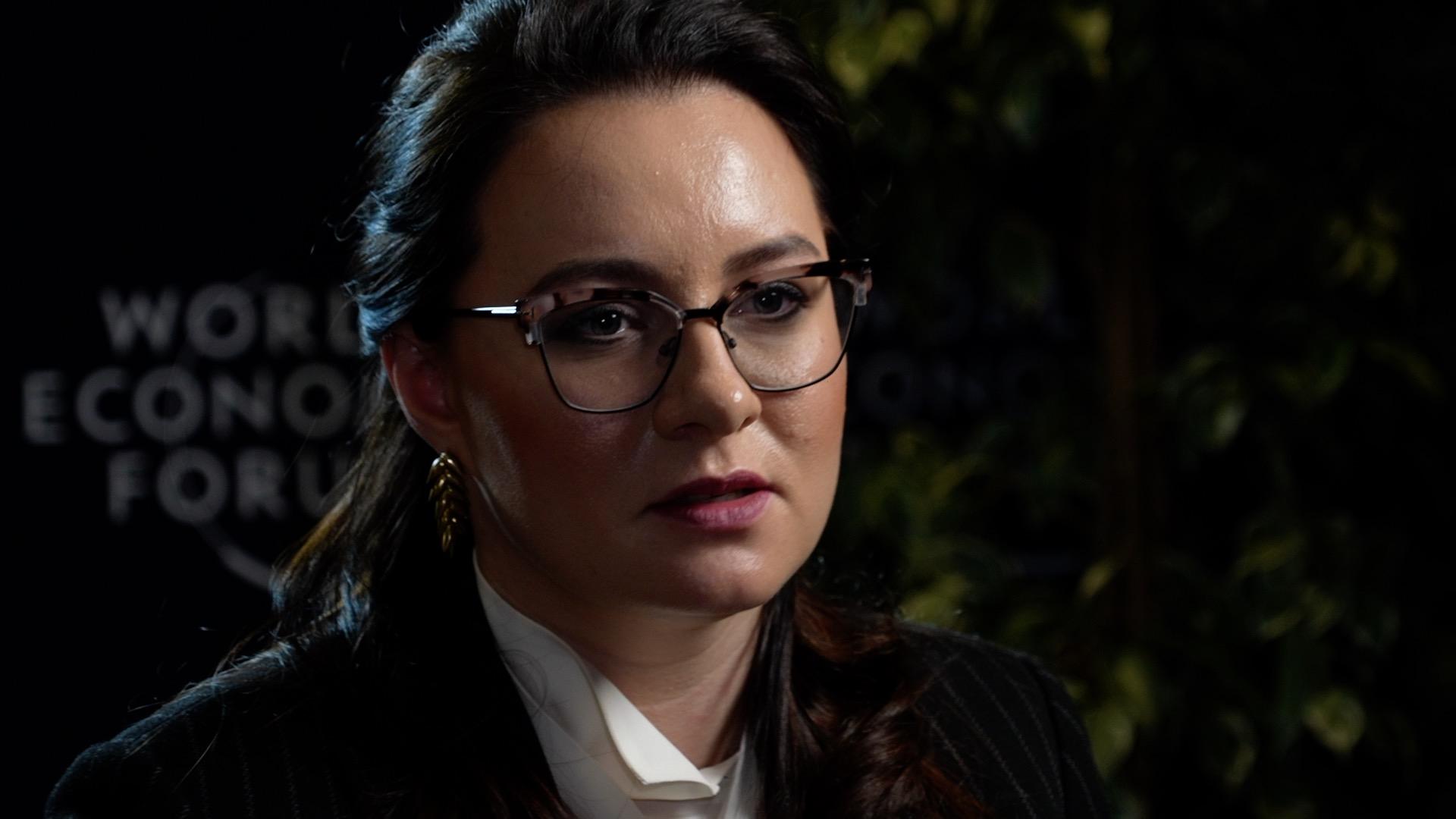Putin weaponising Ukraine’s crops, says Polish PM
- Published
- comments
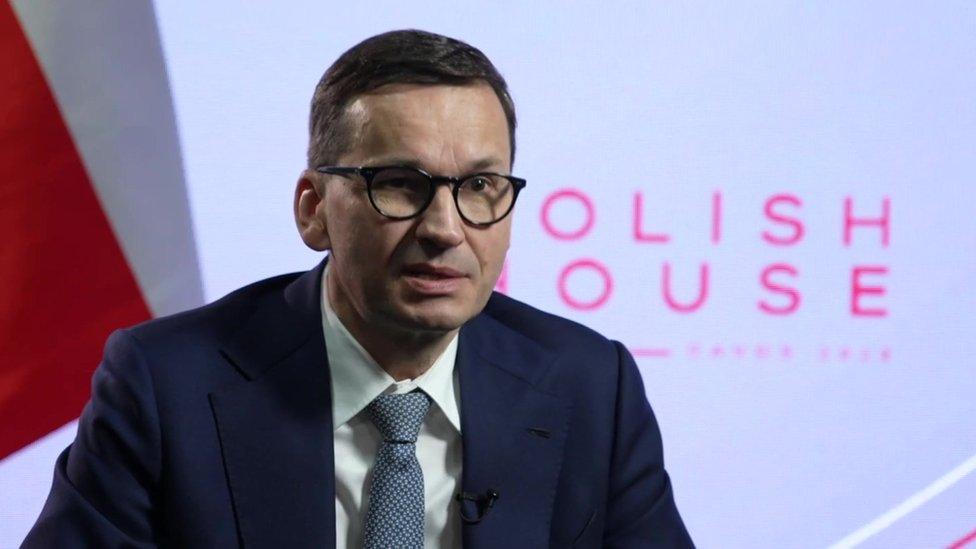
Vladimir Putin is "weaponising Ukraine's crops" as "a blackmail tool" for the rest of the world, Poland's prime minister said at the World Economic Forum in Davos.
Mateusz Morawiecki told the BBC it was like what "Stalin did in 1933".
In a wide-ranging interview, he also warned that "only Putin" would be "happy" with a UK-EU trade war over the Brexit deal for Northern Ireland.
Ukraine's inability to export its grain has led to global food prices soaring.
It has also raised the prospect of famines in the countries which depend on its exports.
Mr Morawiecki said that this was "part of [Mr Putin's] strategy" in order to "create ripple effects in Northern Africa and huge migration waves".
His warning was echoed by the European Commission President, Ursula von der Leyen, who told delegates in Davos that Russia was using "hunger and grain to wield power".
"Global co-operation is the antidote to Russia's blackmail," she said.
Fears are rising that the Black Sea blockade is causing a global food crisis.
On Monday, Ukraine's deputy Prime Minister urged the international community to create a "safe passage" to enable the millions of tons of grain stuck in Ukraine to leave the country.
Yuliia Svyrydenko, First Deputy Prime Minister of Ukraine, told the BBC that some sort of "corridor" was needed.
A UK government spokesperson said the country was working "intensively" with partners to find ways to allow grain exports to resume.
However, there are "no current plans" for Royal Navy warships to help break Russia's blockade, the spokesperson added.
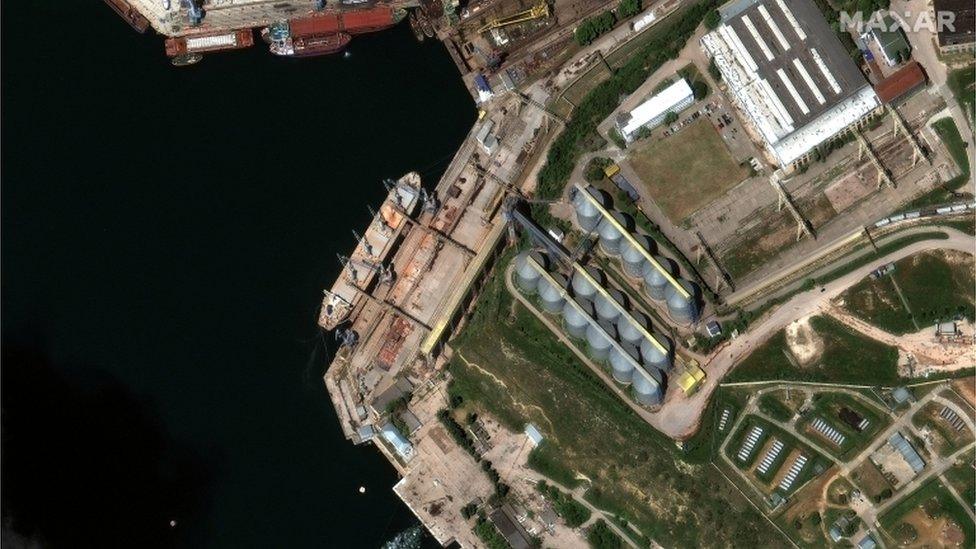
A satellite image shows a bulk carrier ship loading grain at the port of Sevastopol
Satellite images taken by Maxar Technologies have emerged purportedly showing grain shipments being moved to a Russian ship at the port of Sevastopol, Crimea.
The BBC has not been able to independently verify the pictures.
'Russia under pressure'
Mr Morawiecki said he expected an agreed EU oil embargo on Russia within days or weeks, with some carve outs for the Czechs, Slovakia, Hungary and Austria.
And he called for the Nordstream One gas pipeline from Russia to Germany to be shut down this year.
Mr Morawiecki said that "Russia is under real pressure" from existing sanctions but this would have its impact over the medium and long term.
He suggested the Russian president was relying on rising energy and food prices draining support in the West for Ukraine, and politicians needed to explain and mitigate the impact on prices.
"We have to explain to the public opinion what are the consequences of the war," he said. "Putin's main tool is intimidation, fear, illusions and propaganda."
On the possibility of a trade war between the UK and EU, Mr Morawiecki said it would be "lose-lose".
"Only Putin and our enemies will be happy with yet another disagreement between such close partner partners as the United Kingdom and the European Union," he said.
He said there was room for compromise between Brussels and London and he was trying "to calm down the situation between France and the United Kingdom as much as possible".
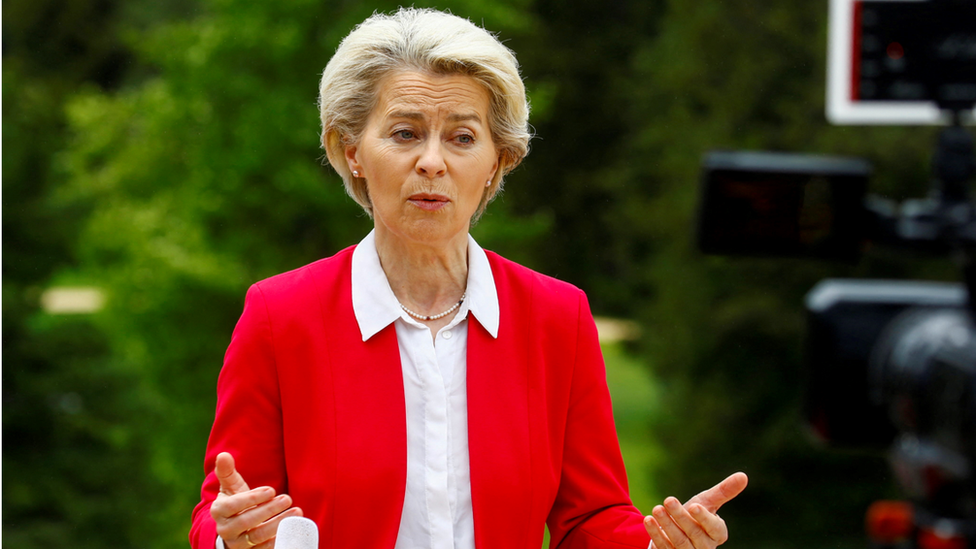
Ursula von der Leyen said Russia is using "hunger and grain to wield power"
When pushed about what would happen if the UK unilaterally breaks the deal, as is currently being planned for, the Polish PM replied: "In the current circumstances in particular, where we have such a brutal invasion, it should be a wake up call for those who want to disagree on anything.
"United, we are strong. Divided we are very weak."
But the Polish PM also had some criticism for his EU colleagues.
Asked if he was worried about noises emerging from Paris and Berlin about compromise with Russia, he pointedly replied: "Some Western European leaders wanted to have cheap, natural resources and peace. And what they got is very expensive raw materials and natural resources and war.
"So they should bear in mind that Putin is first working to divide us and second to make us impatient and make us tired with everything."
Mr Morawiecki added that, as with other wars, including the Second World War, "we have to be prepared for a long war, unfortunately, and we have to make public opinion knowledgeable about what is going on in Ukraine".
Related topics
- Published16 May 2022
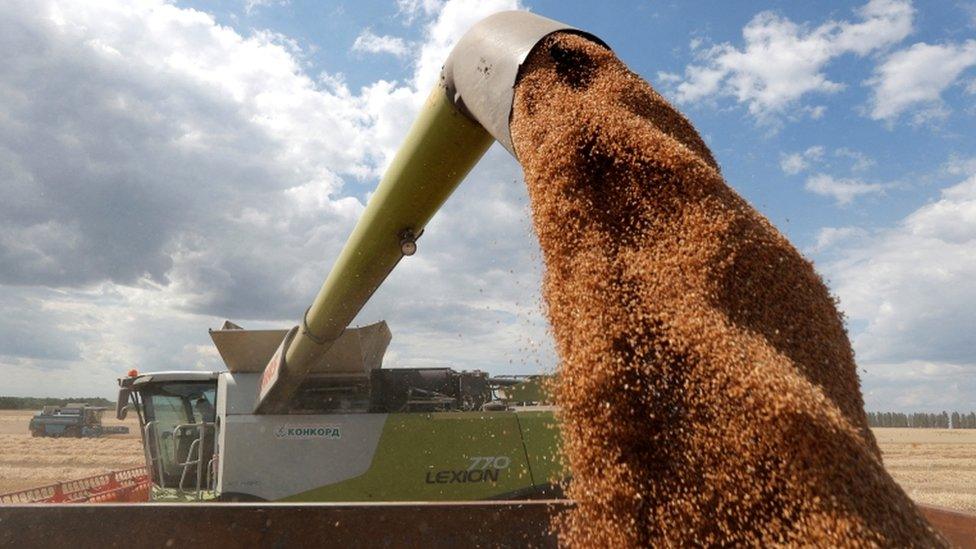
- Published23 May 2022
